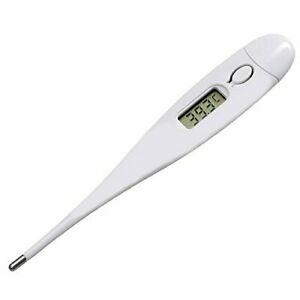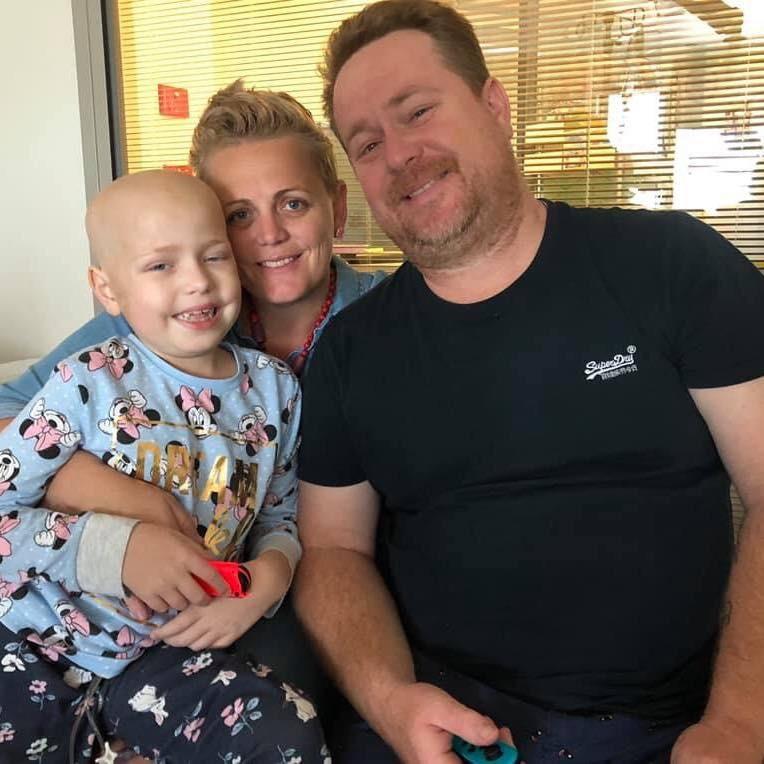Questions to ask when your child is diagnosed
When your child is first diagnosed with lymphoma, it can be a very stressful and emotional experience. There is no right or wrong reaction. It is often devastating and shocking, it is important to allow yourself and your family time to process and grieve.
It is also important that you do not carry the weight of this diagnosis on your own, there are a number of support organisations that are here to help you and your family during this time.
When your child is diagnosed with lymphoma, there are a lot of questions you might want answers to , but forget to ask. The whole experience can be very overwhelming, and it can be hard to think clearly. Some good questions for the doctor are:
- What subtype of lymphoma does my child have?
- Is this a common or rare type of lymphoma?
- Is this lymphoma fast or slow growing?
- Is this type of lymphoma curable?
- Where in the body is the lymphoma?
- When does treatment need to start?
- Roughly how long will treatment go for?
- Does my child need to stay in hospital for treatment?
- Where does treatment happen? – In our local hospital or a larger hospital in a bigger city?
- Does this type of lymphoma have a high risk of coming back after treatment?
- What impact will treatment have on my child’s ability to have kids of their own?
For further advice on ways to advocate for your child, see Redkite website.
If your child becomes unwell at home
Having a child diagnosed with lymphoma means there will likely be a time when they become unwell while at home in your care. This can be a very scary idea and you might want to prepare for this ahead of time. Preparation and planning ahead helps reduce any panic you might feel in the moment. Preparation helps keep you and your child on track to getting them better again.
Some helpful preparation might include:
- Have the phone number for the cancer ward at your treating hospital available. This information should be kept in an easily accessible location – like on the fridge. You can ring the cancer ward at any time and ask the advice of the specialist nurses there.
- Having a spare bag packed for hospital at all times. This bag might include some essential items for your child and yourself such as: change of underwear, change of clothes, pyjamas and toiletries.
- Keep the information for your child’s specialist doctor and diagnosis at hand. When arriving at the emergency department, this information will be helpful. Should the emergency doctors want to speak with your specialist about your child’s care.
- Having a plan in place regarding the care of any other children you are responsible for – if you need to take your child to the hospital, who can watch your other children?
- Knowing the easiest route to the hospital from your house
- Knowing where to park at the hospital
Usually when a child with lymphoma becomes unwell at home, the cause is often one of two things:
- Infection
- Side effects from lymphoma treatment
In most cases, both infections and side effects are very treatable and cause no long-term problems. It is very important that you listen to medical advice and get treatment as early as possible. Often side effects such as nausea, vomiting and diarrhoea, can be managed with the medications given by the hospital. When symptoms are severe, your child might need additional help and needs to go to the hospital.
It is important that if your child is suspected to have an infection, you take them to hospital immediately as they will need treatment as soon as possible. If you are unable to drive yourself and your child to hospital, phone the ambulance on 000 (triple zero).
If you are concerned about your child’s health and safety phone the ambulance on 000 (triple zero).
How to monitor your child’s temperature during treatment
One of the signs that your child has an infection is a high temperature. A high temperature is considered to be 38.00 C or above – this is also known as having a fever or being febrile.
Children having cancer treatment have weaker immune systems because of their treatment. A fever can be a sign the body is trying to fight off a bacterial or viral infection.
If you take your child’s temperature and it reads 38.00 C or above – take them immediately to your closest emergency department. If you have no way of driving yourself and your child to the hospital, phone the ambulance on ‘000’ (triple zero).
A fever after chemotherapy can be life threatening.
While your child is having cancer treatment (particularly chemotherapy), it is good to regularly take their temperature, this will give you an idea of what a normal temperature for your child is. You might want to get a notebook and pen, to record their temperatures in. You can buy a thermometer from most pharmacy stores, if purchasing this is an issue, speak with your hospital. A standard thermometer, which measures temperature under the arm, is roughly $10.00 – $20.00.

Take your child’s temperature 2-3 times a day, roughly the same time each day and record it. A high temperature is considered 38.00 C or above. It is good to take your child’s temperature in the morning so that if it is higher than normal, you are made aware of this earlier rather than later. The goal is to catch a fever as soon as possible.
If you take your child’s temperature and it is lower than 38.00 C but higher than normal, re-take it 1 hour later. Avoid giving antipyretic medications such as paracetamol (Panadol) or ibuprofen (Nurofen). These medications often bring down a temperature and will cover up a fever. A fever is a sign your child’s body will need help fighting the infection.
If your child is showing signs of being unwell but does not have a fever, you can still take them to the hospital. Sometimes children become unwell with an infection but do not get a temperature. Signs of being unwell might include:
- Lethargic, flat, sore throat, cough, difficulty breathing, runny nose and watery eyes, diarrhoea, tummy pains, vomiting and headache.
If your child is showing a combination of these symptoms but no fever, you can still take them to hospital.
If your child has severe diarrhoea or vomiting and is unable to keep food and fluids down they will be a risk of becoming dehydrated and might need to go to hospital to manage this. Dehydration can cause other complications and make your child sicker.
Your child’s diet during treatment
A healthy diet for your child plays an important role in every stage of the cancer experience including before, during and following treatment. For more detailed information regarding lymphoma and nutrition, follow the link Nutrition and Lymphoma.
Unfortunately, some of the side effects of lymphoma and its treatment may impact on your child’s ability to consume a nutritious diet:
- Taste and smell changes
- Loss of appetite
- Nausea and vomiting
- Mouth ulcers
- Abdominal pain and bloating
- Heartburn
- Pain
Many of these side effects can be managed with some simple strategies and appropriate use of medications. Speak with your child’s dietician and medical team about management strategies. It can be hard for your child to communicate the reasons behind them not wanting to eat, so be patient with them.
Here are some helpful tips you can do to try and help your child have the best diet:
- Provide small and frequent meals
- Soft foods such as pasta, ice-cream, soup, hot chips, pudding and bread might be easier for your child to eat.
- Try and help your child drink as much fluid as possible
If you’re worried about your child’s diet and weight, please speak with your child’s dietician. Do not give your child any herbal remedies or unusual foods without checking with your child’s treating team first.
School and treatment
Your child’s schooling is likely to be affected during this time. It is important that you be open with the school about your child’s diagnosis and what their treatment will look like. If you have other children in school, it is possible this diagnosis might impact their schooling also.
Most schools will be supportive and can try and provide some way of helping your child continue their learning during treatment.
Some hospitals have a hospital schooling system which can be accessed to help supplement your child’s learning. Speak with your nurses and social workers about schooling options at the hospital.
- It is important to remember that while your child’s schooling and learning is important. The priority at this time is their health, missing school might be more of a social issue for your child than a long-term educational issue.
- Keep your child’s principal and lead teacher up to date regarding your child’s condition and capacity to both attend school and complete any work set.
- Speak with the social worker and hospital cancer nurses about how to explain your child’s lymphoma to their classmates.
- Prepare your child for the physical changes they might experience because of treatment (hair loss). Discuss with the school and social worker how to educate your child’s class on the change in appearance your child might have.
- Find ways for your child to remain connected to their social circle by phone calls, Facebook, Instagram, text message and any other ways to keep them connected with their closest friends.
Redkite is a helpful organisation that can provide a range of services to support your child and your family. They provide education support.
Looking after yourself
Being the parent or guardian of a child with lymphoma can be a tiring and all-consuming task. It is very difficult to look after your child with lymphoma if you are unable to adequately look after yourself. Some options for self-care during their diagnosis and treatment are:
- Exercising regularly, even a short walk or run outside can make a difference
- Making healthy food choices – convenience can often lead to unhealthy choices and make you feel tired and lethargic
- Socialising with friends – keeping connected to your own support network is vital if you are going to be able to support your child
- Limiting alcohol consumption
- Practising meditation and mindfulness
- Creating a regular sleep schedule for yourself
- Keeping a journal of your child’s journey – this might help you keep track of things and help you feel more in-control
For more information on ways to support yourself, see Redkite website.
Information and supports for parents and caregivers
If you are a parent or carer of a child who has been diagnosed with lymphoma, it can be a stressful and emotional experience. There is no right or wrong reaction.
It is important to allow yourself and your family time to process and acknowledge the diagnosis. It is also important that you do not carry the weight of this diagnosis on your own as there are a number of support organisations that are here to help you and your family during this time.
You can always contact our Lymphoma Care Nurses by clicking the contact us button at the bottom of this page.
Other resources you may find helpful are listed below:


